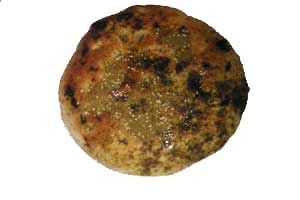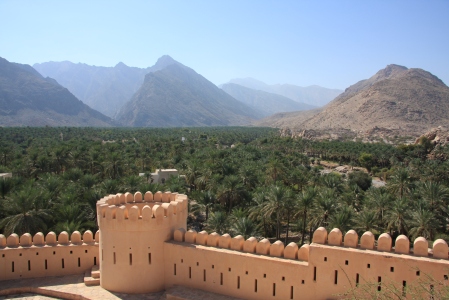President Obama has been deliberating over the last few months whether or not he should increase the amount of troops in Afghanistan. It’s been a hot topic, with the President facing mounting public displeasure with his failure to end the wars that Bush started while in office. The reason for these deliberations is the resurgence of the Taliban, which has led the top brass in Afghanistan to request more troops to combat it.
So, what is really happening with Afghanistan?
The answer can be found in a desolate, snowy pass in the mountains of eastern Afghanistan. Somewhere, buried by the passage of time, lay the remains of thousands upon thousands of British soldiers, casualties of the first British expedition to Afghanistan in 1842. A gloomy foreshadowing of things to come.
What did these men die for? The same could be asked of the hundreds of US soldiers who have given their lives up in Afghanistan over the last eight years. The same could be asked of the thousands of Russian soldiers who died during the Soviet Union’s brutal attempt in the 80s to impose Communism on the country.
But in fact, Afghanistan is not a country. Afghanistan is the name given to an artificially created region that acted as a buffer zone between British India and Tsarist Russia. It was never meant to be a country – in fact, its borders were drawn specifically so that ethnic and tribal differences would prevent a strong, unified government – and it probably will never be a country, in the proper sense of the word. Afghanistan, in truth, is a territory in which reside a disparate collection of hostile tribes that have been fighting each other for centuries.
In a place rent asunder by such tribalism and fratricide, one can expect lawless people to thrive. Osama bin Laden, after his exile from Saudi Arabia and Sudan, settled on Afghanistan as a promising venue for his fledgling Al Qaeda movement. From there, he planned the 9/11 attacks and expanded the Al Qaeda network, recruiting many of the mujahideen or “strugglers” who had fought Soviet troops in Afghanistan ten years before. The 9/11 attacks elicited a predictable response: the United States invaded Afghanistan under the banner of the UN within a matter of months, in hot pursuit of the man who had wrought destruction on American soil, and to topple the Taliban regime that had harbored him.
The Taliban regime could hardly have been called a regime, since in truth it controlled little more than the streets of Kabul. Historically, no government in Afghanistan has ever controlled the entire country. The regime fell with barely any resistance, leaving the US and its allies to find Osama bin Laden.
Yet the US seemed to have other goals in mind as well, one of which was to give Afghanistan a democratic government. The logic was simple: democratic governments are stable and more competent, and have a wider support base among citizens. So give Afghanistan a democratic government and it will be able to control the country, rooting out the likes of Osama bin Laden and other “terrorists.” The experiment has been unsuccessful, and the Americans and their allies now face Afghanistan’s age-old problem: how to control a motley bunch of quarrelsome tribes and ethnicities. Afghanistan continues to be as lawless as ever.
The philosophy of toppling dictatorships and attempting to create democracies in their place has proven misguided in both Iraq and Afghanistan, with the latter descending into a debilitating war between international forces and the Taliban. I can think of several reasons why democracy isn’t working and the war should end.
1. Like I said before, Afghanistan is not a country but a territory created by outside powers. This means that Afghanis have no sense of being “one nation” with a single identity. They identify most closely with their clan, followed by their tribe, followed by their ethnicity, and last, with the nation itself. Without this sense of being a nation, Afghanis will not want to be part of a nation, but will gravitate instead towards their tribal or ethnic identities.
2. We are supporting a highly corrupt warlord-gone-president, who is largely interested in milking the system to his own benefit. This is the reason why the Afghan insurgency has a popular base for fighting us. In the last three months alone, Hamid Karzai has stuffed ballot boxes and bought off rivals. He is certainly sympathetic to the US – if we left, his government would fall immediately – but he is not interesting in reforming or giving up any power. No doubt he is betting that because we don’t want to leave the country to the Taliban, we won’t leave him high and dry by withdrawing from Afghanistan. So he thinks he can do whatever he wants.
The irony of the whole situation is that if we withdraw, the Taliban would not be able to control Afghanistan any more than Karzai could. Their support base is just as narrowly ethnic and tribal as Karzai’s. In the meantime, continued support of a corrupt and tribal president damages our already-tarnished democratic credentials throughout the Muslim world, and puts our troops at danger of attack from enemies of Karzai. What is the incentive to stay?
 When I was a young child, I had three grandmothers. Two of them lived in America, and were related to my parents. The third was Jordanian.
When I was a young child, I had three grandmothers. Two of them lived in America, and were related to my parents. The third was Jordanian. Bedouin tribesmen, cultural ancestors of all Arabs, have led a simple life since the beginning of time. Life in the desert has to be simple. Put bluntly, one must find water in order to survive. Water is more precious than gold, more costly than blood. And the wells, the sources of water, must be protected from outsiders. In an environment where resources are finite and scarce, one could hardly expect hospitality and generosity to be prominent cultural values. And yet Arabs are one of the most hospitable people on the planet. For a close look at the specific reasons behind
Bedouin tribesmen, cultural ancestors of all Arabs, have led a simple life since the beginning of time. Life in the desert has to be simple. Put bluntly, one must find water in order to survive. Water is more precious than gold, more costly than blood. And the wells, the sources of water, must be protected from outsiders. In an environment where resources are finite and scarce, one could hardly expect hospitality and generosity to be prominent cultural values. And yet Arabs are one of the most hospitable people on the planet. For a close look at the specific reasons behind 